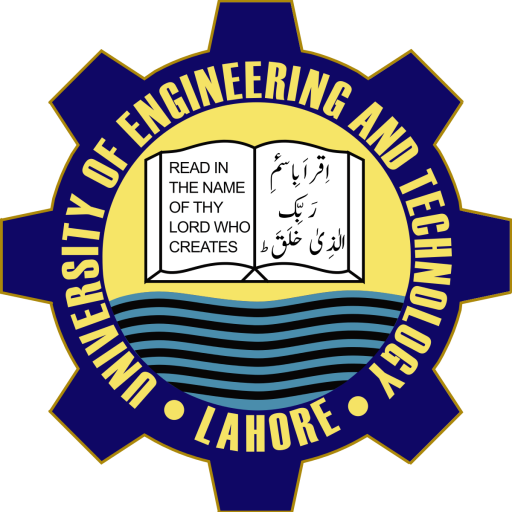Introduction
The Dept. of Metallurgical & Materials Engineering is one of the oldest department that has been producing quality graduates since 1965 and has the distinction of being the first in the country to offer a formal degree course in Metallurgical & Materials Engineering. Since its inception, the Department of Metallurgical & Materials Engineering has produced highly skilled engineers who have contributed to the economy of the country. The main strength of the department has been research activities that enabled the students to have hands-on experience with industrial problems. The students along with the faculty have been actively engaged in carrying out research activities to find the solutions to complex problems. In such regards, domains like corrosion engineering, metallography, testing of ceramics, electrical and magnetic testing, mechanical testing (such as tensile testing, hardness testing, impact testing, bend testing, compression testing), replica metallography, inspection of swings and rides, fracture and failure analysis, etc. are involved. The department has been striving to provide consultancy and testing services to private and public-sector organizations due to its research-intensive environment. This is only possible due to the presence of diversified and qualified faculty within the department.
Metallurgical and Materials Engineering graduates have a wide scope in terms of job placement. The graduates are appointed at various public sector/defense sector organizations such as PMO, AWC, KRL, PCSIR, PSQCA, SNGPL, NDC, SUPARCO, OGDC, Steel Mills, etc. However, in the private sector, the top recruiters include DESCON, KSB Pumps, SGS, SKF, Inspectest, Bureau Veritas, IKAN, EKL, Millat Tractors Limited (MTL), Millat Equipment Limited (MEL) and many more.
Currently, the Department of Metallurgical & Materials Engineering has an enrollment of about 40-50 students per year, pursuing undergraduate studies in Metallurgical & Materials Engineering. The department has been continuing its postgraduate program since 1978 and offers courses for the degrees leading to M.Sc. and Ph.D. in Metallurgical & Materials Engineering. Current enrollment for M.Sc. Metallurgical & Materials Engineering program is about 30. The Courses are aimed at bringing the students abreast with the most recent developments in their fields of specialization.
To produce Metallurgical and Materials Engineers with strong professional knowledge, sound ethical values, a passion for lifelong learning and keen sense of social responsibilities. The graduates are trained for their active role in academia, industry and R&D sector at national and international level keeping in view the latest trends and maintaining the standards in the field.
Program Educational Objectives (PEOs)
The PEOs are the broad statements defined by the Board of Studies (BOS) that provide the road map to achieve the career and professional aims by the graduates after five (05) years of graduation. The PEOs for B.Sc. MME program imitate the mission of the University and MME B. Sc. Engineering Program. The PEOs are vital for successful professional exercise and the ability to follow advanced degrees. The department has developed three PEO statements for its undergraduate Metallurgical and Materials Engineering program.
- Generate sustainable solutions to the industrial and analytical problems related to metallurgy and materials engineering using contemporary tools and techniques.
- Work in teams with effective leadership, entrepreneurial and communication skills.
- Achieve professional development while demonstrating socio-ethical responsibility.
B. Sc. Engineering Program Learning Outcomes (PLOs)
- Engineering Knowledge: An ability to apply knowledge of mathematics, science, engineering fundamentals to the solution of complex engineering problems related to Metallurgical and Materials Engineering.
- Engineering Problem Analysis: An ability to identify, formulate, research literature and analyze complex engineering problems reaching substantiated conclusions using first principles of mathematics, natural sciences and engineering sciences.
- Design or Development of Solutions: An ability design solution for complex engineering problems and design systems, components or processes that meet specified needs with appropriate consideration for public health and safety, cultural, societal, and environmental considerations.
- Investigation: An ability to conduct investigation into complex problems using research based knowledge and research methods including design of experiments, analysis and interpretation of data, and synthesis of information to provide valid conclusions.
- Modern Tool Usage: An ability to create, select and apply appropriate techniques, resources, and modern engineering and IT tools, including prediction and modelling, to complex engineering activities, with an understanding of the limitations.
- Engineer and Society: An ability to apply reasoning informed by contextual knowledge to assess societal, health, safety, legal and cultural issues and the consequent responsibilities relevant to professional engineering practice.
- Environment and Sustainability: An ability to understand the impact of professional engineering solutions in societal and environmental contexts and demonstrate knowledge of and need for sustainable development.
- Ethics: An ability to apply ethical principles and commit to professional ethics and responsibilities and norms of engineering practice.
- Individual and Team Work: An ability to function effectively as an individual, and as a member or leader in diverse teams and in multi-disciplinary settings.
- Communication: An ability to communicate effectively on complex engineering activities with the engineering community and with society at large, such as being able to comprehend and write effective reports and design documentation, make effective presentations, and give and receive clear instructions.
- Project Management: An ability to demonstrate knowledge and understanding of engineering and management principles and apply these to one’s own work, as a member and leader in a team, to manage projects in multidisciplinary environments.
- Life Long Learning: An ability to recognize the need for and have the preparation and ability to engage in independent and life-long learning in the broadest context of technological change without disturbing the balance of life.
